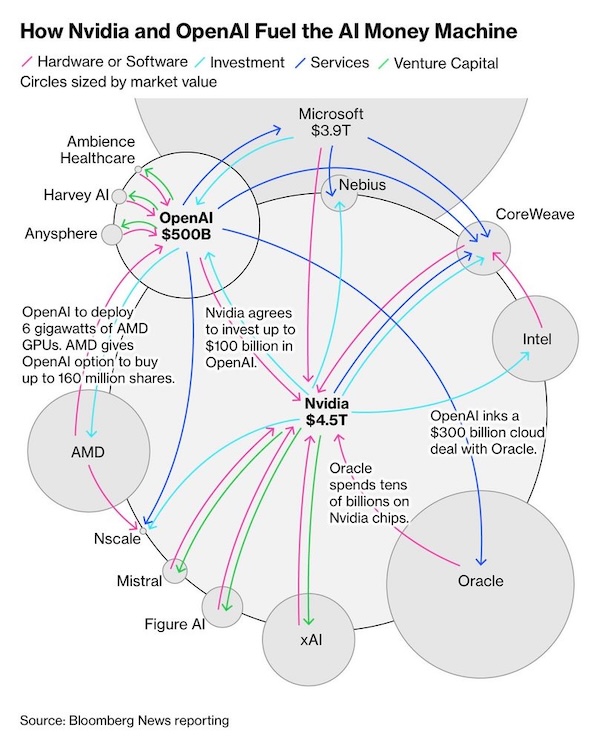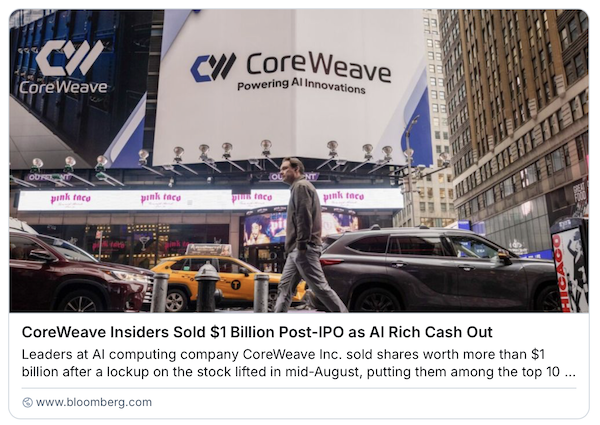Below are some of the most interesting things I came across this week. Click here to subscribe to our free weekly newsletter and get this post delivered to your inbox each Saturday morning.
LINK
Ruchir Sharma writes, “AI companies have accounted for 80 per cent of the gains in US stocks so far in 2025. That is helping to fund and drive US growth, as the AI-driven stock market draws in money from all over the world, and feeds a boom in consumer spending by the rich.”
GRAPHIC
However, the circular nature of much of the spending on the AI buildout is starting to draw wider scrutiny. “The recent wave of deals and partnerships involving Nvidia and OpenAI are escalating concerns that an increasingly complex and interconnected web of business transactions is artificially propping up the trillion-dollar AI boom,” reports Bloomberg.
LINK
In addition, the size of the deals has run well beyond the absurd. “OpenAI may very well be the hottest start-up of all time—and there is a long line of investors looking to back them—but a trillion dollars is, to put it succinctly, nuts. It’s roughly 3.4% of 2024 U.S. gross domestic product and about a quarter of all nonresidential private investment. All this from a start-up that still has large and growing losses. I’m a big believer in AI, but I still believe in math. And the numbers don’t add up,” reports Barron’s.
LINK
Finally, the end goal of all of this spending looks increasingly out of reach. As David Cahn writes, “The limitations of the Internet as a dataset, the limitations of continuous learning, and the evidence of GPT-5’s incremental progress, have led many of AI’s leading thinkers to update their timelines for AGI. And yet at the same time, we’re spending as though exactly the opposite evidence has come in.”
STAT
It’s also a little curious that, even as they encourage America to go all in on AI, so many AI evangelists are cashing out. “Including CoreWeave, seven of the top 10 insider sellers in the third quarter came from companies making money from artificial intelligence, Washington Service data show,” reports Bloomberg.






